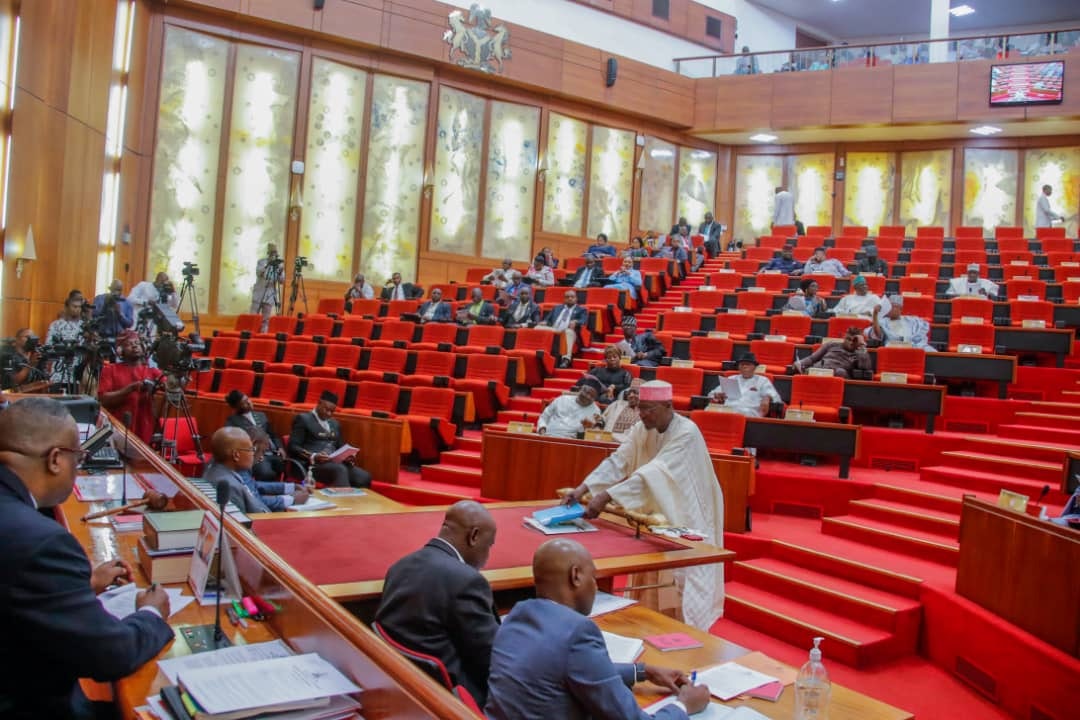The Senate has received for consideration, the revised 2022-2024 Medium Term Expenditure Framework (MTEF) and Fiscal Strategy Paper (FSP).
President Muhammadu Buhari’s letter to this effect was addressed to the President of the Senate, Ahmad Lawan, and read at plenary on Tuesday.
The MTEF/FSP provides the basic structure for the estimates and assumptions that underly the annual budgets.
Deputy Senate President, Ovie Omo-Agege, who presided over the sitting read the letter.
The Senate, had on Sept. 22, approved the 2022-2024 MTEF/FSP pegging Benchmark oil price of US$ 57 per barrel.
The letter reads: “It is with pleasure that I forward the revised 2022-2024 MTEF-FSP for the kind consideration and approval by the Distinguished Senate.
“The revision was necessitated by the need to reflect the new fiscal terms in the Petroleum Industry Act (PIA) 2021 as well as other critical expenditures in the 2022 budget.
“The underline drivers of the 2022 fiscal projections such as oil price benchmark, oil production volume, exchange rate, GDP growth and inflation rate to reflect emerging realities and a microeconomic outlook and remain unchanged as in previously approved 2022-2024 MTEF and the FSP.”
The President said that the PIA established a fiscal framework aimed at encouraging investment in the Nigerian Petroleum Industry.
This significantly alters the oil and gas fiscal terms and has necessitated changes in the 2022-2024 medium-term fiscal framework.
“The fiscal effect of PIA implementation are presumed to kick in by mid-year 2022.
“The revised 2022-2024 fiscal framework is the premise on a hybrid of January to June based on current fiscal regime and July to December based on PIA fiscal regime while 2023 and 2024 are fully based on the PIA.
“Arising from this, therefore, the other critical expenditure that should be accommodated in the 2022 budget, the changes to the 2022 projections in the fiscal framework are as follows:
“Growth revenue projection decreased by N341.57 billion from N8.87 trillion to N8.528 trillion.
“Deductions for federally-funded upstream project costs and 13 per cent derivation decreased by N335.3 billion and N810.25 million respectfully.
“An increase in the projected federal government of Nigeria’s retained revenue from N8.36 trillion to N10.13 trillion inclusive of Government-Owned Enterprises (GOEs).
“This was largely based on a projected increase in the revenues of GOEs by N837. 76 billion,” the report said.
Meanwhile, the Senate in a Point of Order, 1b, moved by the leader, Sen. Yahaya Abdullahi, mandated its committee on Finance to work on the document for presentation on Wednesday.



